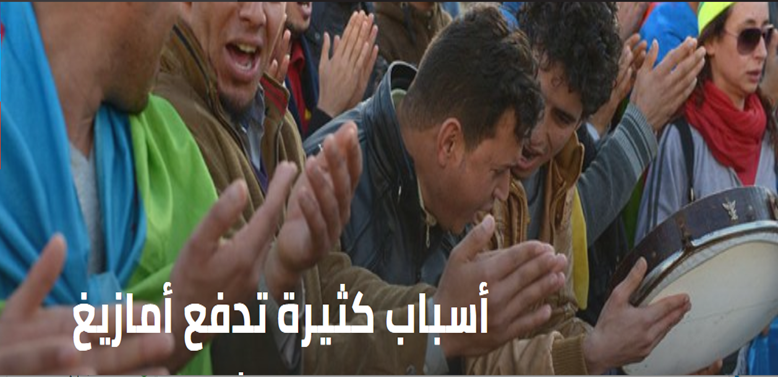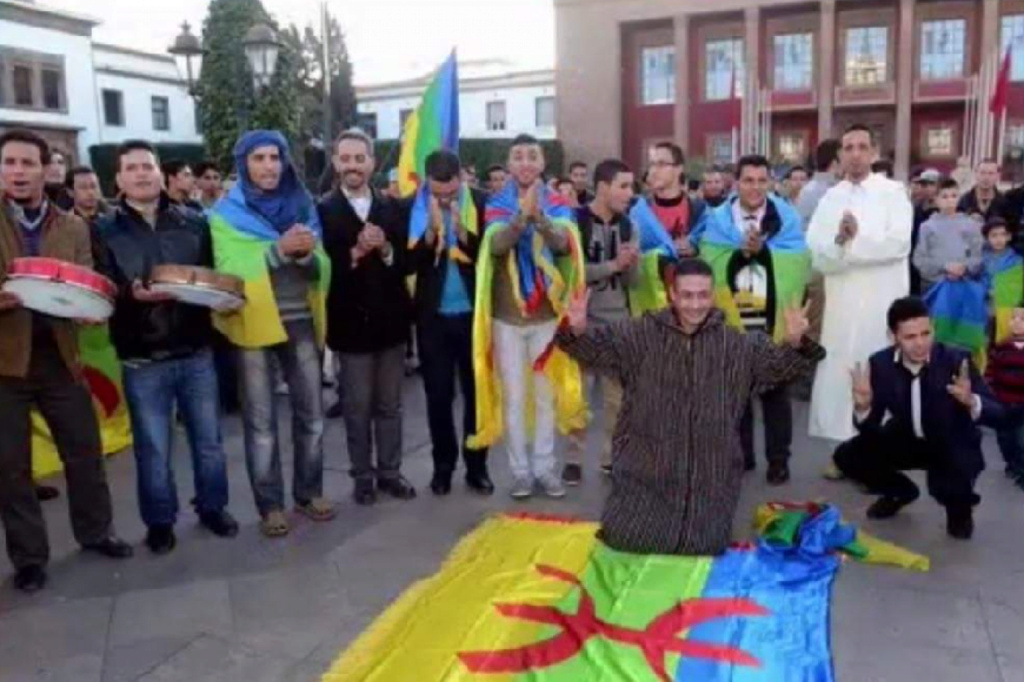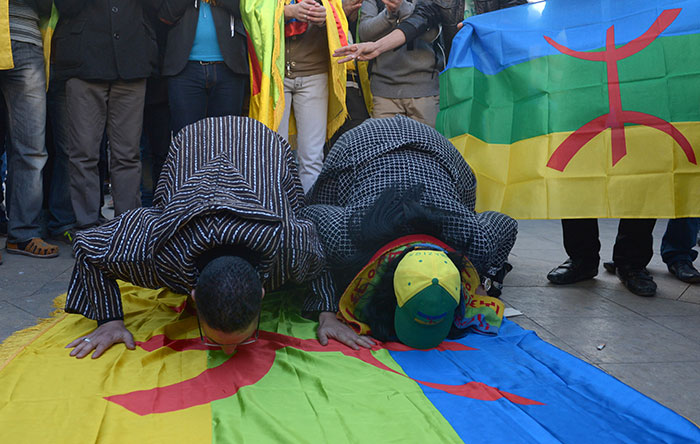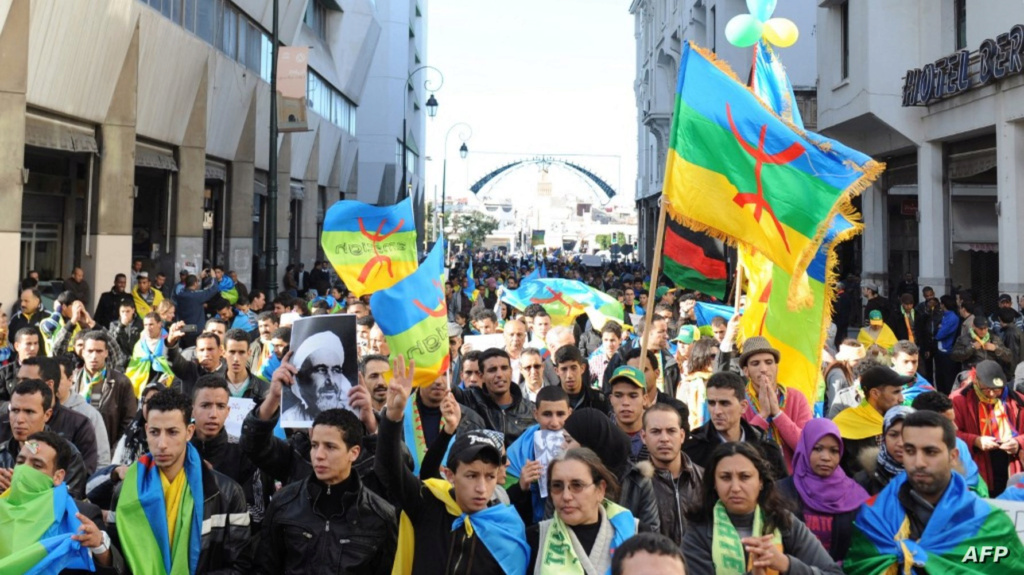There are many reasons for the Amazighs of Morocco to feel marginalized

Almost four years have passed since the Amazigh language was approved as an official language in Morocco, after the approval of the constitutional amendments of 2011. However, despite the importance of this step in the course of the Amazigh struggle, the Amazigh cultural movement is not completely satisfied with the course of affairs during the past years.
The implementation of these constitutional measures is still slow, which raises the concerns of Amazigh civil actors, who fear the existence of deliberate intentions to obstruct the actual implementation of constitutional requirements. These fears are exacerbated by the persistence of some manifestations of the marginalization of the Amazighs in various walks of life.
Who delays the achievement?
Like other activists defending cultural and linguistic rights, Ahmed Assid, an activist in the Amazigh Observatory for Rights and Freedoms, is still awaiting the issuance of the two regulatory laws that will make Tamazight an official language, namely: the regulatory law related to activating the official character of Tamazight, and the regulatory law of the Languages Council. He told: "The government does not have a direct hand in delaying the implementation of the decision, because the Amazigh file is included in the sovereign files that are decided by the higher authorities, such as the women's file, the Sahara file, and religious affairs. This is the main reason for the delay: the government cannot move this file without a signal from above that defines some constants to resolve the dispute and ensure consensus."
Asaid added, "The regulatory law for the Amazigh language will be prepared in the government's general secretariat after communicating with the higher authorities and with the government before opening dialogue and consultations with civil society and the rest of the parties. This does not mean that the government is not responsible for delaying the advancement of the Amazigh language, because there are matters it undertook in its first statement." It must be achieved, and it is not necessarily related to the regulatory law, but to the continuation of the previous institutionalization process that began in 2001, a process that the current government obstructed and halted in many sectors instead of enriching and continuing it.
Excesses against the Amazighs
Assid recorded the continuation of a number of abuses and blatant violations against Amazigh women, especially in the fields of education and media. He cites as an example the issue of withdrawing the mandate related to teaching Tamazight from specialized professors who were specially trained to teach it, and assigning them, on the contrary, to teach Arabic and French in many educational offices and academies. Of the 14,000 teachers appointed to study Tamazight, only about a thousand practice this work, with the number not exceeding 380 specialized teachers. It also continues, according to Assid, to disrespect the commitment books signed by the TV channels, especially the first and the second, without any accountability by the ministry or by the commission in charge (the Haka).

The head of the International Amazigh Assembly, Rachid Rakha, also saw that the current situation is similar to the situation before the declaration of a comprehensive war on everything that is Amazigh. He told: "The Amazigh language is still completely ignored in public institutions, even on their facades. Likewise, the state in its various institutions continues to use Arabic and French as its official languages, despite the fact that French is an unconstitutional language."
In addition, Rakha indicated that "it was forbidden to speak just Amazigh in Parliament, and the registration of Amazigh names continues to be prohibited, and the protests of the Amazigh movement continue to be suppressed in a way that did not happen before the ordination of Amazigh. In addition, the reference to the education of Amazigh was ignored in reform projects." Education, whether that was drafted by the Ministry of National Education, or the report prepared by the Supreme Education Council linking the integration of Amazigh education with the issuance of its regulatory law.
The beginning of openness
The Moroccan political system had begun to be relatively open to the demands of the Amazighs, after King Mohammed VI came to power, in an attempt to overcome the injustice that the Amazighs were suffering from during the reign of the late, powerful King Hassan II. Two years after his accession to power, King Mohammed VI, in a speech he delivered on October 17, 2001, known in the literature of the Amazigh movement as the " Speech of Agdir " (relative to the place of the speech), recognized Amazigh as an essential component of Moroccan culture. As a result, the Royal Institute of Amazigh Culture was established in 2002 as a national institution with the mission of promoting Amazigh and contributing to the enactment of public policies related to this language. The letter “Tifinagh” was approved for writing Amazigh in 2003.

Criticism of the Royal Institute of Amazigh Culture
Amazigh activists criticized the Royal Institute of Amazigh Culture for mismanagement, lack of independence from power, and weak initiative. Farchid Rakha believes that the situation in this institution is living evidence of the regression of the Amazigh gains. He adds, "The administrative board of the institute has been frozen, it has not been constitutionalized, it has been absent from official institutions, and its powers have not been developed in a way that would enable it to actively contribute to the advancement of the Amazigh language after its demarcation."
In Rakha's opinion, "we should not expect the institute, which is an academic institution, to do more than what is permitted by the Dahir that established it and the laws that frame its work. But certainly, and as we always say, diligence is required by this institution, especially since it is the only official institution specialized in Amazigh".
However, Ahmed Assid believes that the Royal Institute of Amazigh Culture has an important role to play in the next stage, despite the observations made on its work, because it is the academic institution in charge of calibration (bringing a unified Amazigh language into existence). He is the reference on how to write, its grammar, the lexicon, and other things related to the Amazigh language and culture. This is in addition to continuing his advisory role within official councils such as the Supreme Education Council and the National Council for Languages.
A complaint of cultural marginalization
Amazighs, in particular, complain of the continued marginalization of their culture within public administrations such as the courts and others. Amazigh citizens who only speak their own language can only hope that in the courts, hospitals or municipal councils they will find someone who understands their language to help them manage their affairs.
In addition, some Amazigh families are still suffering from the refusal to register their births with Amazigh names , claiming that they are not in the list of "acceptable names", and this is an old heresy that was behind the late former Minister of Interior Idris Al-Basri. Despite Moroccan officials announcing that they have overcome this problem, and consequently the absence of any decision banning the registration of newborns with Amazigh names, several families are still victims of the employees' judgments.

Sources close to the Islamic Justice and Development Party, which leads the government coalition, said that the regulatory law for the creation of a language council, which was supervised by the Ministry of Culture, has been prepared and sent to the royal court for approval. It is expected to be issued in conjunction with the law activating the official character of the Amazigh language.
But this will not be the end of the Amazigh movement in Morocco, Asaid says, pointing out that their movement is a liberation movement and not a demand movement in the field of language and culture, and it carries a comprehensive democratic project, one of the most important elements of which is the separation of religion from the state.
Source: websites

